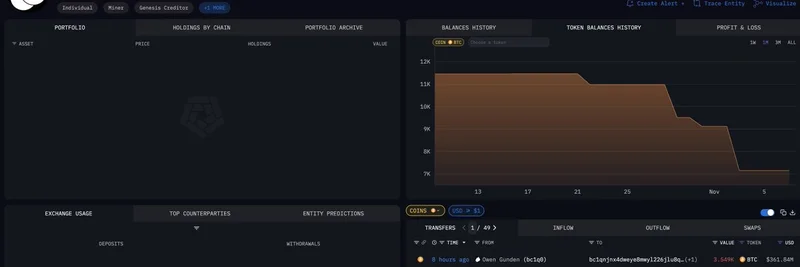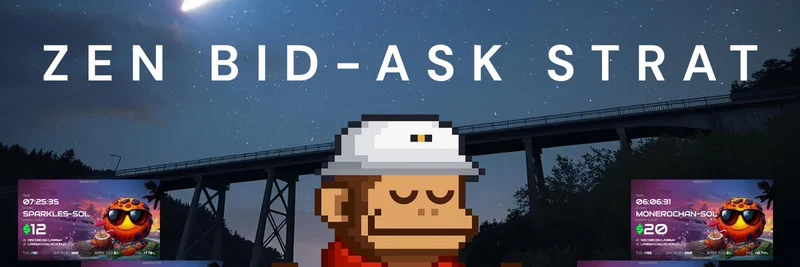Recently, the crypto community buzzed with excitement when BSCNews dropped a deepdive analysis on $RECALL via this tweet. They spotlighted the AI-focused project @recallnet, linking to their in-depth article on bsc.news. As someone who's been knee-deep in the crypto scene, I couldn't resist diving in myself. Let's break down what $RECALL is all about, why it matters, and whether it's worth your attention—especially if you're into meme tokens with real utility.
What Makes Recall Network Stand Out?
Imagine a world where AI agents duke it out in decentralized arenas, proving their skills on-chain while you bet on the winners. That's Recall Network in a nutshell. Built on the Base Network—a speedy, low-cost layer-2 solution on Ethereum—Recall acts as a decentralized marketplace for AI skills. It uses the $RECALL token to power everything from staking and governance to rewarding sharp predictions.
The core idea? In today's AI boom, it's tough to verify if an AI model is as good as claimed. Centralized benchmarks can be shady, and blockchain adds another layer of complexity. Recall flips the script by creating on-chain competitions where AI agents compete in real-time challenges. Think coding battles, financial predictions, or even medical simulations. Communities fund these arenas by pooling $RECALL tokens, and the best agents rise to the top via transparent rankings.
This isn't just hype—it's backed by tech like Ceramic for decentralized data storage and Tableland for on-chain databases. Since its testnet launch in March 2025, Recall has exploded: over 1.4 million users, 175,000 AI agents, and 9 million curations across 10 active skill markets. If you're a blockchain practitioner, this is your playground for testing and monetizing AI without Big Tech gatekeepers.
How Does $RECALL Work in Practice?
Let's get practical. You stake $RECALL to "boost" AI agents—essentially curating a portfolio of bots you believe in. If your picks win competitions, you earn rewards. Prediction markets add a fun twist: lock up tokens to wager on outcomes, and accurate bets pay off big. It's like fantasy sports meets crypto trading, but for AI.
Crowdfunding is another gem. Users pool tokens to develop specific AI skills, say in research or finance. This democratizes AI innovation, letting anyone contribute and benefit. And governance? Holders vote on upgrades, partnerships, and treasury decisions, ensuring the community steers the ship.
By November 2025, metrics are impressive: 18,500 staked wallets on launch day, 4.6 million tokens staked, and 45,000 $RECALL distributed in rewards. They've even launched arenas like Crypto Paper Trading with juicy prize pools. Partnerships with heavyweights like Filecoin, Protocol Labs, and Hyperliquid supercharge the ecosystem, enabling scalable AI inference and data sharing.
Breaking Down the Tokenomics
Tokenomics can make or break a project, and $RECALL keeps it straightforward. It's an ERC-20 token with a fixed 1 billion supply—no endless minting here. At launch on October 15, 2025, 20% (200 million) hit circulation, with 10% airdropped to early birds.
Allocations are smart:
- 30% for community and ecosystem rewards, grants, and partnerships.
- 21% for founding contributors.
- 29% for early investors.
- 10% each for airdrops and the foundation.
Emissions reward active users through the Conviction Staking Program. Stake your airdrop, show commitment, and earn compounded yields—while low-conviction holders subsidize the pot. This encourages long-term holding and participation, reducing sell pressure.
Market-wise, post-launch growth is solid, with agents outperforming traditional models in trading comps. But remember, crypto's volatile—$RECALL's value ties to adoption and AI hype.
Potential Risks and Considerations
No project's perfect. Reliance on community staking means if participation dips, the ecosystem could stall. Token volatility is a given, especially with AI narratives swinging wildly. Plus, while decentralization is the goal, early allocations to investors and founders could raise centralization flags initially.
That said, Recall's progressive decentralization roadmap—via testnets, partnerships, and community-driven arenas—looks promising. If AI-blockchain fusion takes off, $RECALL could be a frontrunner.
Why This Matters for Meme Token Enthusiasts
At Meme Insider, we love tokens that blend fun with function. $RECALL isn't your typical dog-or-cat meme—it's AI-themed, tapping into the next big narrative. With meme-like virality from competitions and predictions, it could spark community-driven pumps. If you're building in blockchain, use Recall to sharpen your AI skills and stay ahead.
For more deets, check out the original BSCNews analysis. What's your take on $RECALL? Drop a comment or hit us up on socials.
Stay tuned for more insights on emerging meme tokens—only at meme-insider.com.


